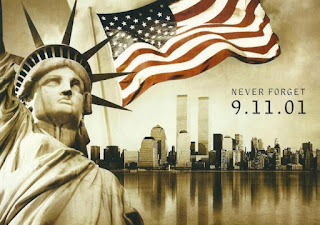A major factor is that I am academically trained. I went to school for a long time, and being in that environment makes deep impressions on us as pastors. Here is why this matters: Whether as a point of conviction or simply as a corrective to majority assumptions, the academy usually views nationalism through a predominately suspicious lens.
One thing I learned in the academy is the almost irrefutable truth that the tendency to blend theological conviction with nationalism has historically almost always had hazardous and oppressive results. And when I look into my congregation and across the American church, I see that the overwhelming majority still function with some kind of conviction (often nebulous, but occasionally stated explicitly) that Americanism is fundamentally and organically Christian. Even if they agree with the notion that the kingdom of God is not identifiable with the United States of America, there is still a default understanding that what is good for Christianity is that America be strong, and vice versa. Americans seem to have been converted as much to Christendom and they were to Christianity, so nationalism is a hallmark of faithful Christian discipleship.
So what do I do when 9/11 roles around?
If I post a picture of the twin towers with #NeverForget, what am I communicating? First off, am I identifying myself fundamentally with Americanism? Or am I trying to communicate my solidarity with the thousands of Americans who died in a tragic act of violence? Further, am I somehow condoning the military action undertaken as a part of the war on terror as a faithful and Christian enterprise? Theologically speaking, am I guilty of helping others not love their enemy? Finally, what is it exactly that I don't want people to forget and why?
This is the problem with hashtags in general, and hashtag theology in particular. It is so vacuous that it actually operates almost thoughtlessly.
Or do I go on the offensive and actively speak against such remembrances as expressions of Christendom? I could criticize the idea of "not forgetting" as patently unfaithful to the gospel of reconciliation. But will it be heard, or will it be misunderstood, because I have chosen the worst day possible to try and make a point in one Facebook post that it took me more than 10 years to come to understand (and that still not completely).
Sure, at some level all communication breaks down and the speaker cannot control what the hearer (or reader) takes away; however, I want to be as responsible as I can with my words, especially when I am trying to speak according to God's will. And in this light, I offer my own thoughts to this dialogue. Not as THE answer, but as an answer that I have found some peace in.
I do think that there is value in national remembrance that is not simply propagandizing. While recalling tragedy in our national story can often serve some miserable jingoism or xenophobia, it could also be argued that sometimes remembrance is used as a connection to our deeper humanity--both in terms of the value of human life as well as in terms of human brokenness and depravity. And that deeper humanity is an essential and necessary voice for a nation to hear that may influence its people to not simply give into the nation's most institution-preserving impulses. In that sense, memory serves the cathartic and restorative function of correcting nationalism with basic human pathos (which is a fundamental kingdom orientation).
This is especially important for American Christians (academy or not) to remember on days like today--that remembrance is not simple patriotism, but also is an expression of a deeper belief in the kingdom of God. We remember, not to hate, but to forgive. We remember, not to raise our ire, but to raise our eyes to see those who died and those who loved them mourning and hurt by the brokenness all too prevalent in our world. We remember because lives matter. We remember because things that hurt are often worth remembering. We remember in order to heal and help others heal.
#NeverForget to love your neighbor
#NeverForget to love your enemy
#NeverForget that our hope is still coming


Thanks for share and remind the big tragedy of the word with us once again BT change password
ReplyDeleteThanks for sharing such an informative article.It was quite interesting to read the different perspectives of your ideas and keep updating us with more posts like this. Yahoo passowrd reset recover help
ReplyDelete